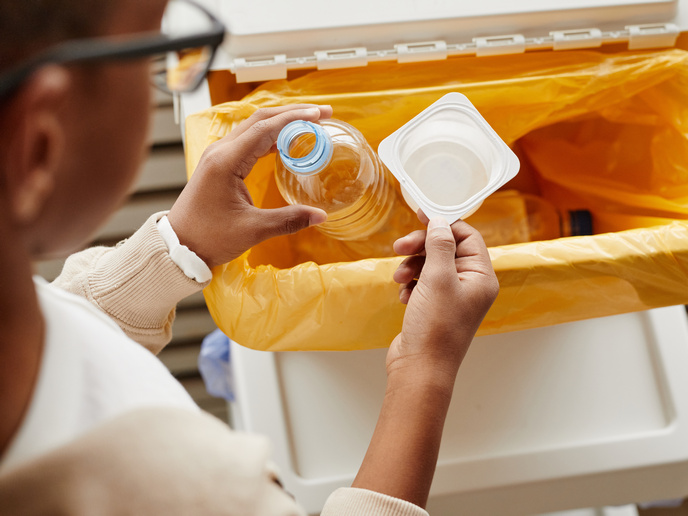Why isn’t all plastic recyclable?
You rinse out your yoghurt pot, drop it in the recycling bin and feel smug. But then you hesitate: what about that plastic tray your fruit came in? Or the bubble wrap from your last online order? What makes the difference when it comes to waste? “Most plastics can be melted down and reshaped, like turning ice cubes into water and back again,” explains Moretto, a chemical engineer at the French Alternative Energies and Atomic Energy Commission (CEA). “Others are designed to be tough and heat-resistant – great for durability, but terrible for recyclability.” Multilayer food packaging, such as that used in coffee cups, poses a particular headache. They consist of different plastic films glued together, making separation for recycling almost impossible. While most packaging plastics that pass through your hands can be recycled in theory, only about 10 % actually are. Putting them in the right bin is just one part of the equation – collection, sorting and contamination all get in the way. As does cost – the fact remains that making new plastic is often cheaper than reusing old stuff.
Reimagining plastic
Moretto and his colleagues in the EU-funded SURPASS project are working on ways to create safe, sustainable and recyclable-by-design [SSRbD] plastics(opens in new window). One solution is multinanolayered (MNL) films, which limit the need for additives used to make different plastics bond together, and allow for easy separation of laminated plastics. The team also looked at decontamination of used plastic packaging, so it can safely be recycled for a new life – a key step for a truly circular economy. Another focus is the tough polyurethane materials used in building insulation and window frames. By giving these materials vitrimer-like properties (meaning their bonds can be broken and reformed), the team has made resins that can be reprocessed just like traditional recyclable plastics. There’s a trade-off though. “Adding recyclability can slightly weaken performance,” says Moretto. “The challenge is to find the sweet spot where materials are still strong enough for their job.”
Building better
Construction will be the first sector to benefit from these novel plastics, with recyclable window frames already close to market. Packaging and transport applications will follow later. SURPASS is not the end of the story. The team has launched a new project, PLANETS, to focus on more sustainable plastic additives. So in the future, you can be sure that dropping your yoghurt pot in the green bin really will make a difference. Click here to find out more about SURPASS’ research: Tackling plastic waste with next-gen materials



